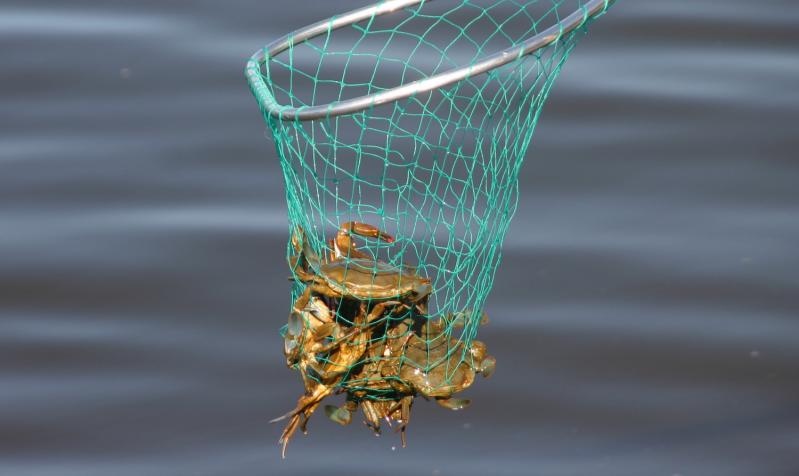An “organized crab crime ring,” as East Hampton Town Supervisor Peter Van Scoyoc described it, is stealing valuable natural resources from the town and must be deterred with updates to the town code including stiffer penalties, attorneys for the town and the town trustees told the town board on Tuesday.
David McMaster, an assistant attorney for the town, and Chris Carillo, the trustees’ attorney, described “vans full of nonresident people coming at night” and “taking bushels and bushels of shellfish out of Napeague Harbor” and other waterways including Georgica Pond, where people working alone or in concert have repeatedly poached blue-claw crabs.
The discussion came months after the trustees, who have jurisdiction over many town waterways and bottomlands, discussed poaching with Tim Treadwell, the town’s chief harbormaster, specifically the harvesting of shellfish without a town permit, harvesting undersize shellfish, and taking quantities in excess of the legal limit. The board agreed on Tuesday that updates to the code aimed at combating poaching should be scheduled for a public hearing and adoption as soon as possible.
The board and trustees agreed last fall that creation of an “aggravated” level of violation for poaching would disincentivize would-be violators.
The goal, said Chris Carillo, the trustees’ attorney, is to “come up with a list of items that we could include to update the legislation into an aggravated taking of shellfish.” He relayed Mr. Treadwell’s description of poachers fleeing under cover of night after being alerted to the presence of Marine Patrol officers by a lookout, and poachers apprehended but not carrying identification, “and, because it’s just a violation, it’s not an arrestable offense.” The town must “pinpoint these types of takings that are happening, include them in an aggravated offense-type legislation, make it an arrestable offense, and then give it more teeth” with respect to fines and potential jail time.
He proposed five violations to be elevated to aggravated charges. They are a person lacking a commercial or recreational shellfish permit who is harvesting shellfish while working in concert with one or more people; those harvesting shellfish using a designated lookout or watch system of communication; a person taking shellfish who flees or attempts to flee or evade authorities; those harvesting shellfish between sunset and sunrise, though this would not apply to license holders, and a person lacking a commercial license possessing shellfish for commercial purposes. In instances of the latter violation, a person without a commercial shellfish permit found in possession of twice the recreational limit shall be deemed as possessing shellfish for commercial purposes, as would a person without a commercial license found to be exporting shellfish outside of the town.
Where the current fine for shellfishing without a permit is $150, Mr. Carillo suggested a fine of $1,000, which would increase to $1,500 after 15 days, $2,000 after 30 days, and $2,500 after 90 days. “When these people are able to take shellfish and sell them for thousands of dollars farther west,” he said, “the $150 fine does not seem to have nearly enough teeth.” For those found guilty of an aggravated charge, “it’s a crime, it’s on your criminal record.”
“We’re looking to make this punishable by up to 30 days in jail as well,” Mr. McMaster said. The attorneys told the board that they will investigate the potential to impound or even seize vehicles, including boats, of those caught poaching. “I think if it is something that we find that we can do within the confines of the law, then we should pursue that as well,” Mr. Carillo said.
The trustees’ attorney “painted the picture of what’s happening out there in the middle of the night, where most residents don’t see it,” said Councilman David Lys. The town is losing “one of our most cherished resources,” which provides food, income, recreation, and even cleaner waterways through filter-feeding shellfish, he said. “I think it’s shameful that it has come to this right now. . . . I look forward to seeing this move forward as soon as possible.”
A public hearing on the proposed legislative changes could happen early next month.




